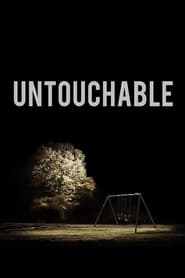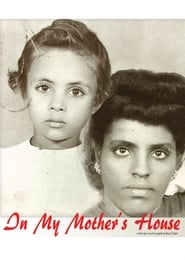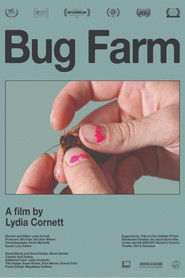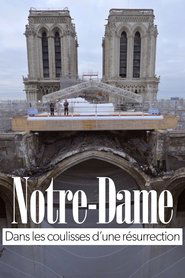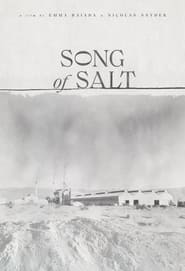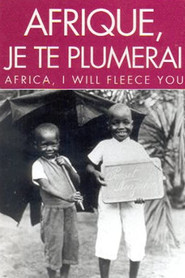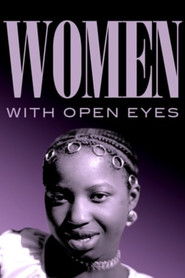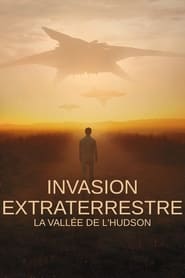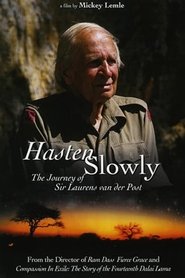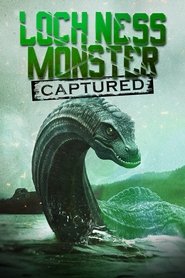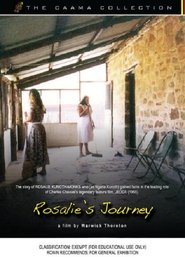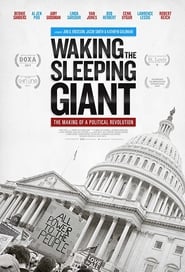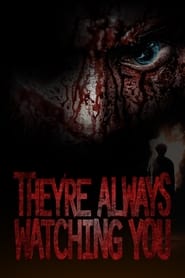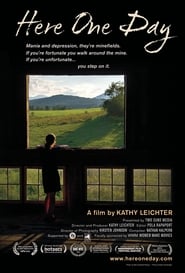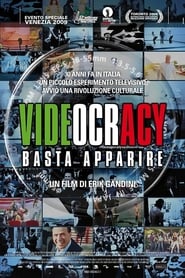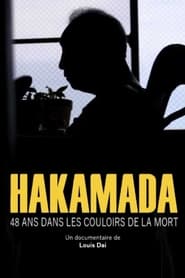Popular Documentary Movies on Free Services - Page 356
-
Untouchable
2016
Untouchable
2016
star 7When a powerful Florida lobbyist discovered that a nanny sexually abused his daughter, he wielded all of his considered political capital to pass some of the strictest sex offender laws in the country. Today, 800,000 people are listed in the sex offender registry, yet the cycles of abuse continue. Moving from the halls of power to the cardboard homes of a marginalized pariah people, this enlightening documentary defies expectations and challenge assumptions to argue for a new understanding of how we think about and legislate sexual abuse. -
In My Mother's House
2017
In My Mother's House
2017
One day in 2005, Lina Fruzzetti receives a startling email that reads, "If this is your father, we are cousins." There follows a decade-long quest to learn more about her Italian father who died young in Italian ruled Eritrea and her Eritrean mother who does not dwell on the past. Above all, Fruzzetti strives to understand her far-flung African, European, and American family against the backdrop of colonial rule, worlds at war, migration, grief, diasporas, and the global world in which we all live. -
Bug Farm
2020
Bug Farm
2020
Four women in Central Florida establish a unique bond while working with crickets, superworms and roaches on an insect farm in the rural town of LaBelle. -
Notre-Dame of Paris, Rising from the Ashes
2021
In 2019 the whole world watched flames destroy the roof tops of Notre-Dame of Paris cathedral. After clearing and securing the site, the huge task of reconstruction began. To the men and women working to save and restore the magnificent cathedral, this is their mission, to be completed quickly and perfectly. -
Song of Salt
2022
Song of Salt
2022
star 8Set in an isolated mining town on the outskirts of Death Valley, SONG OF SALT is an immersive glimpse into the struggles and celebrations within a tight-knit community as its residents, suspended between the past and the future, face the present realities of an eroding economy. -
Africa, I Will Fleece You
1992
star 5.8This documentary of repressive political realities in Cameroon begins with the 1990 publication of an open letter to President Biya calling for a national conference - and the immediate arrest of the letter's author and publisher. The narration then examines the nation's colonial history, beginning with the first German missionary in 1901, the establishment of schools, French occupation following World War I, the paucity of books written by and published by Cameroonians, and the repression of the CPU, a leftist organization of the 1950s and 1960s. Cameroon and its people are the lark, its feathers plucked first by colonialism and then by native strongmen: 'Alouette, je te plumerai.' -
Women with Eyes Open
1994
Women with Eyes Open
1994
star 5.9Portraits of contemporary African women from four West African nations: Burkina Faso, Mali, Senegal and Benin. -
Alien Invasion: Hudson Valley
2021
star 6.5NEW YORK (July 14, 2021) – Now that the U.S. government can no longer deny the existence of UFOs, eyewitnesses feel emboldened to share their stories and there’s a renewed hope that we may learn the truth about whether we have been visited by extraterrestrials -
Hasten Slowly: The Journey of Sir Laurens van der Post
1997
An hour-long documentary about author Laurens van der Post, whose autobiographical novel was the basis for the film "Merry Christmas Mr. Lawrence" directed by Nagisa Oshima. -
Loch Ness Monster Captured
2024
Discover the mystery of the Loch Ness Monster in this captivating journey through history, folklore, and modern-day investigations. From ancient sightings to the famous 1934 "Surgeon's Photograph," explore the enduring legend of Nessie. With expert interviews and cutting-edge technology, we delve into the possibilities behind the creature's existence, examining theories ranging from prehistoric survival to misidentified animals. We also explore the psychological and cultural impact of Nessie, from its influence on Scottish identity to its role in tourism. Through eyewitness accounts, scientific inquiry, and local lore, we uncover the legend that continues to fascinate the world. -
Meme Gods
2025
Meme Gods
2025
Meme Gods, directed by Sean Flax and Bryan Black along with executive producer Cedric the Entertainer, will take a deep dive into the world of internet memes and explore their origins, and comedic and cultural significance. -
Rosalie's Journey
2003
Rosalie's Journey
2003
In 1955, filmmaker Chauvel debuted Jedda. His star was a young Arrernte woman from Alice Springs named Ngarla Kunoth, or Rosalie. Her story, the story of what happened before and after Chauvel's film, is told in Rosalie's Journey. -
Waking the Sleeping Giant: The Making of a Political Revolution
2017
At the crossroads of the 2016 presidential race and the fight for civil rights, economic fairness, and a democracy that works for everyone. -
They're Always Watching You
2021
star 5They're always watching you. Humanity has only resided on Earth for a fraction of the planet's incredibly long history, and many believe that a species known as the Krepid vastly predate humankind - and are still with us today. The Krepid need to consume us to survive, but most believe they also enjoy the hunt. Join us as we explore the terrifying, secret world of the Krepid. -
Pyramid Builders: New Clues
2019
Over the past few decades, significant discoveries have been made on the very site where the pyramids were built. But now, hundreds of kilometers from the pyramids themselves, we are gaining more insight into just how they were built. Two teams of Egyptologists, one based in the middle of the desert, the other located on the Red Sea coast, are currently discovering more about the Egypt of Khufu’s time, than at the foot of the pyramids. What they found help them figure out how ancient Egyptians worked. This film has been shot from within, immersed for several weeks within these 2 archaeological missions. Authentic archaeological experiments have been filmed in real time, revealing ancient techniques and methods, unlocking certain secrets of these ancient great builders. -
Divorce: A Journey Through the Kid's Eyes
2014
star 5.4A powerful examination of the effects of divorce told by kids for kids that the whole family will benefit from. Witness testimonies as kids face the trauma, work through the pain, and learn to heal. -
As It Happened: Guadalcanal
2020
star 5In August 1942 US Marines storm ashore on the Japanese-held island of Guadalcanal. The six-month campaign that follows is brutal and becomes etched in Marine legend. -
Here One Day
2012
Here One Day
2012
star 7.3When filmmaker Kathy Leichter moved back into her childhood home after her mother's suicide, she discovered a hidden box of audiotapes. Sixteen years passed before she had the courage to delve into this trove, unearthing details that her mother had recorded about every aspect of her life from the challenges of her marriage to a State Senator, to her son’s estrangement, to her struggles with bipolar disorder. HERE ONE DAY is a visually arresting, emotionally candid film about a woman coping with mental illness, her relationships with her family, and the ripple effects of her suicide on those she loved. -
Videocracy
2009
Videocracy
2009
star 6.4In a country where bella figura is a national pastime, Prime Minister Silvio Berlusconi is the maestro of media manipulation. Having risen to political primacy with the aid of his Mediaset empire, he now controls 90% of the bel paese’s television channels including the state-run RAI network. Quantity, it seems, does not equal quality. Fed on a diet of semi-naked dancing girls, inane competitions and rickety reality shows built around the most ridiculous of premises, is it any wonder that Italians are becoming a nation of fame-hungry wannabes? -
Hakamada - The Longest-Held Death Row Inmate in The World
2021
star 8On the 30th of June, 1966, in a small country-side town in Japan, four members of the Hashimoto family are stabbed and burnt to death in their family home. The savagery of the crime shakes the country and shortly after, 30-year-old retired boxer Iwao Hakamada is arrested, convicted and sentenced to death. Despite a lack of evidence, Hakamada would remain on death row for almost half a century before being granted a retrial in 2014.
 Netflix
Netflix
 Amazon Prime Video
Amazon Prime Video
 Apple iTunes
Apple iTunes
 Apple TV Plus
Apple TV Plus
 Disney Plus
Disney Plus
 Google Play Movies
Google Play Movies
 Paramount Plus
Paramount Plus
 Hulu
Hulu
 HBO Max
HBO Max
 YouTube
YouTube
 fuboTV
fuboTV
 Peacock
Peacock
 Peacock Premium
Peacock Premium
 Amazon Video
Amazon Video
 The Roku Channel
The Roku Channel
 AMC+
AMC+
 Kocowa
Kocowa
 Hoopla
Hoopla
 The CW
The CW
 Vudu
Vudu
 Starz
Starz
 Showtime
Showtime
 PBS
PBS
 Pantaflix
Pantaflix
 FXNow
FXNow
 Tubi TV
Tubi TV
 Kanopy
Kanopy
 Comedy Central
Comedy Central
 Crunchyroll
Crunchyroll
 Microsoft Store
Microsoft Store
 Redbox
Redbox
 Sun Nxt
Sun Nxt
 ABC
ABC
 DIRECTV
DIRECTV
 Crackle
Crackle
 Fandor
Fandor
 Plex
Plex
